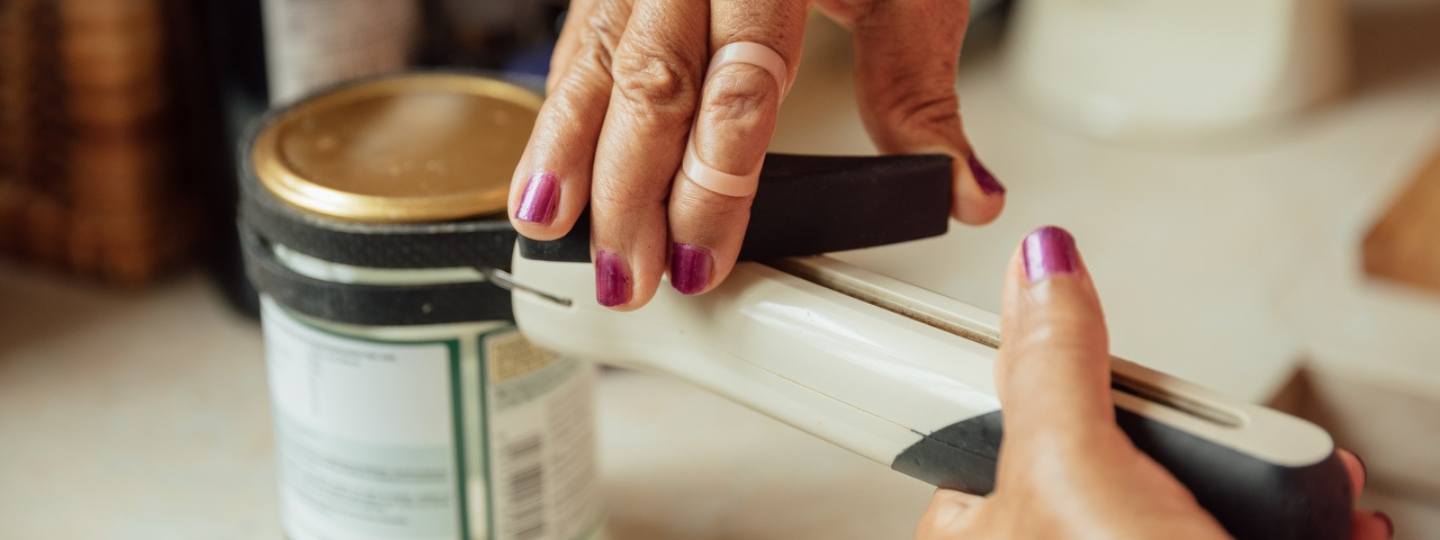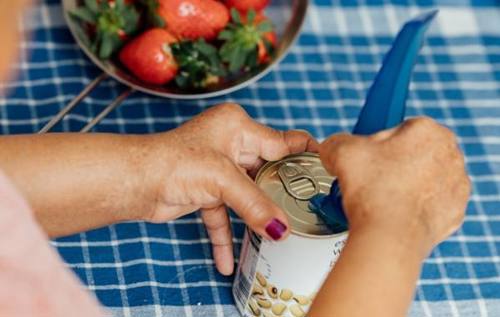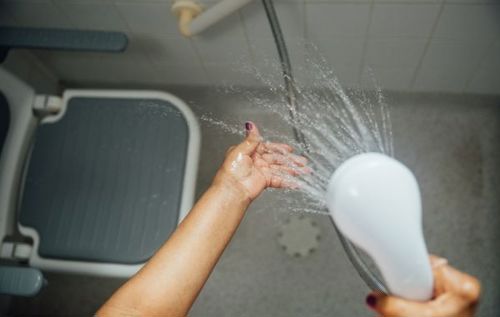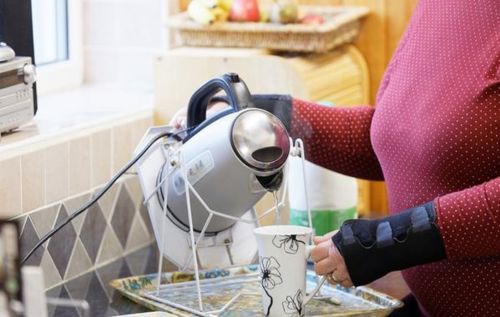How aids and adaptations can help if you have arthritis
30 December 2022
If you have arthritis, we know that everyday tasks — such as getting dressed or cooking meals — can feel difficult at times.
It’s natural if this leaves you feeling a bit stressed or anxious. You deserve to feel safe and independent, and it’s frustrating when pain gets in the way of day-to-day life.
If you’re struggling, it might be worth seeing if there are any gadgets or equipment that could make things a bit easier.
Here’s everything you need to know about aids and adaptations and how they might help you.
What are aids and adaptations?

Aids are equipment that help you manage everyday tasks, such as dressing, showering, cooking, walking or sleeping. They include items such as:
- shoehorns.
- walking aids.
- cutlery with large handles.
- two-handled saucepans.
- grabbing tools.
- raised toilet seats.
Adaptations are changes or additions to your home to help you move around. They can include items such as:
- fixed ramps.
- automatic doors or wider doorways for wheelchair access.
- baths with built-in handles.
- major bathroom changes, such as a walk-in bath or wet room.
Sometimes equipment won’t fix everything — and that’s okay. If that’s the case, maybe you could try changing the way you do everyday tasks to see if that helps. This is called joint protection or joint care.
Could aids and adaptations help me?
Many people with arthritis say that aids and adaptations make a real difference to their day-to-day lives.
In a 2019 report, we found that:
- more than half (60%) of all people with arthritis used an aid or adaptation.
- of those, nine in ten (95%) felt that these products had a positive impact on their lives.
- almost 8 in 10 (79%) said they helped them keep their independence.

Aids and adaptations can prevent accidents and injuries, making you feel safer. They also might give you a confidence-boost and allow you to live more independently.
If you’re unsure which aids and adaptations would be right for you, it’s a good idea to speak to an occupational therapist.
An occupational therapist is trained to help improve your ability to do everyday tasks. They can also recommend useful equipment specially designed for your condition.
You can ask your doctor to refer you to an occupational therapist, or you can refer yourself.
Are aids and adaptations expensive?
Aids and adaptations can be expensive, but many people with arthritis are eligible to get aids from their local council for free. This is sometimes called ‘community equipment.’
It varies depending on where you live and if you're eligible. To check if you’re eligible, simply ask your council for a free needs assessment.
If you need to make a major adaption to your home, you might also be able to get financial support from your local council. This is called a Disabled Facilities Grant.
If you’re not eligible for financial support or you fancy buying your own equipment, you can get many aids and adaptions online, in supermarkets or in hardware stores.
Just compare a few prices beforehand to make sure you get the best deal. Your occupational therapist or physiotherapist will be able to give you some advice too.
Learn more about getting financial support for aids and adaptations
Which aids could help with hands and finger pain?

Many people with arthritis say that they struggle with activities that need a good grip or co-ordination, such as writing or fastening buttons on clothes.
But there are plenty of aids which can reduce the strain on your hands and allow you to get on with your day-to-day life.
If you particularly struggle in the kitchen, some helpful aids might include:
- a kettle tipper.
- spring-loaded scissors that open themselves.
- easy-to-grip cutlery, which has chunky handles.
If washing and getting dressed is what you find difficult, some useful aids might include:
- button hooks.
- a long-handled sponge.
- lever taps.
It’s about seeing what works best for you.
Jennylyn’s story

Jennylyn, 50, who has rheumatoid arthritis, says: "After my diagnosis I found I needed a lot of help around the home and getting around in general.
“It can be a terrifying time being faced with the prospect of trying to do the things you’re struggling with, without help. It can leave you feeling so alone, and there’s no one telling you what help is available to you.
“The stress that comes with that can also have a knock-on effect on my rheumatoid arthritis, making my symptoms worse.
“Aids and adaptations have taken away the stress of everyday life, and I feel so much better. It has meant the difference between being able to cook healthy meals or not.
“The aids mean that my fatigue doesn’t get in the way, and it’s opened up my world again. I’ve gone from being totally restricted to being able to lead a ‘normal’ life.”
You might also be interested in
-
What is joint protection? 5 ways you can look after your joints
Joint protection, sometimes called ‘joint care,’ is about making small changes to the way you do things so that you reduce the pain and strain on your joints. Here are five ways you can try joint protection today.
-
Gadgets and equipment for your home
There are a range of useful gadgets and home adaptations, including sleep aids like pillows, which can help you to manage your arthritis. Find out how they can assist your everyday life.
-
Are you getting enough vitamin D?
Vitamin D is best known as a bone-health hero, helping the body absorb calcium and phosphate to keep bones strong. Learn how you can get more Vitamin D in your diet.